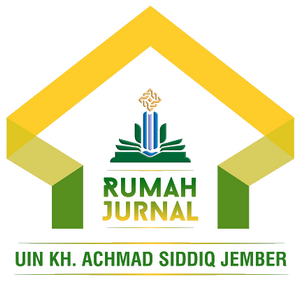Green Transformation in Islamic Education Institutions: Eco-Pesantren Innovation in Shaping Santri's Environmental Care Character
DOI:
https://doi.org/10.35719/ijibs.v2i1.50The Eco-Pesantren program comes as a strategy to create a clean, healthy, and environmentally friendly pesantren ecosystem. This study aims to analyze innovations in the implementation of the Eco-Pesantren program and its contribution to the formation of environmentally friendly santri characters at Pesantren Darunnajah Bogor. The research was conducted with a qualitative approach through a case study method. Data were collected through in-depth interviews, participatory observation, and documentation studies. The main informants include pesantren managers, educators, and students who are actively involved in environmental conservation activities. The data analysis technique refers to the Miles and Huberman model, which includes data reduction, data presentation, and verification and conclusion drawing. The results showed that the Eco-Pesantren program effectively fosters the character of students who care about the environment through various activities such as waste management, recycling practices, organic farming, ecoliteracy training, and pesantren garden management. The values of Islamic teachings, especially the concept of khalifah fil ardh (caretaker of the earth), strengthen the internalization of ecological awareness among santri. The positive impact of this program is reflected not only in the daily behavior of santri, but also in their increased contribution to the surrounding social environment.
References
Alfiah, A., Syafitri, N., Roswati, R., Muslim, M., & Akmal, A. (2022). Hubungan Adiwiyata dengan Sikap Peduli Lingkungan Siswa pada Materi Pengelolaan Sumber Daya Alam di Pondok Pesantren Daarun Nahdhah Thawalib Bangkinang. El-Jughrafiyah, 2(2), 61. https://doi.org/10.24014/jej.v2i2.18729
Anggito, A., & Setiawan, J. (2018). Metodologi Penelitian Kualitatif (E. Deffi (ed.)). CV Jejak (JejakPublisher).https://books.google.co.id/books?id=59V8DwAAQBAJ&printsec=frontcover#v=onepage&q&f=false
Arifah, U., Hidayatullah, A. F., & Hariz, A. R. (2022). Program Eco-Pesantren Dalam Pelestarian Lingkungan. Jurnal Kesehatan Lingkungan: Jurnal Dan Aplikasi Teknik Kesehatan Lingkungan, 19(1), 105–114. https://doi.org/10.31964/jkl.v19i1.462
Bahri, S. (2018). Pesantren And The Development Of Living Environment: The Study Concept Of Eco-Pesantren In Pondok Pesantren An-Nur Ha Rambigundam Jember. International Journal of Management and Administrative Sciences, 5(10), 43–54. https://doi.org/10.20414/jtq.v18i2.2741
Gunawan, M. W., & Alfarisi, M. A. (2023). Eco-Pesantren: Perspektif Pengelolaan Lingkungan Pada Ponpes Salafi Abdussalam Kabupaten Kubu Raya. Jurnal Alwatzikhoebillah : Kajian Islam, Pendidikan, Ekonomi, Humaniora, 9(2), 299–309. https://doi.org/10.37567/alwatzikhoebillah.v9i2.1724
Husnan, R. (2019). Manajemen Kepemimpinan Kiai dalam Meningkatkan Kecerdasan Emosional Santri Pondok Pesantren Husnul Ri’ayah Suboh Situbondo. JIEMAN: Journal of Islamic Educational Management, 1(1), 90–106. https://doi.org/10.35719/jieman.v1i1.13
Junianto, A., Rs, S., & Setiawan, A. I. (2025). Pemberdayaan Lingkungan Melalui Eco-Pesantren. 10(November 2024), 21–42. https://doi.org/10.15575/tamkin.v10i1.28314
Khairani, N., & Fauzi, A. (2023). Program Eco-Pesantren: Peran dan Solusi dalam Pembangunan Berkelanjutan Terhadap Krisis Lingkungan. Jurnal Inovasi Penelitian, Vol. 4(No. 2), 211–218. https://ejournal.stpmataram.ac.id/JIP/article/view/2625/2126
Khairunnisaa, F. (2016). Eco Pesantren di Kabupaten Bandung Barat. Jurnal Arstektur, 1–8. http://www.academia.edu/download/46297312/Jurnal_15210098_Fauziyyah_khairunnisaa.pdf
Maulida, S. S., Nursaniah, C., & Sari, L. H. (2024). Study of implementation of the eco-pesantren concept at Dayah Terpadu Inshafuddin, Banda Aceh. IOP Conference Series: Earth and Environmental Science, 1290(1). https://doi.org/10.1088/1755-1315/1290/1/012037
Nawawi, M. (2024). The Implementation of the Eco-Pesantren Program in Environmental Management at Islamic Boarding Schools in. 7(6), 885–893. https://doi.org/10.32832/pro
Nisa, Z. K. (2019). Pengembangan Pendidikan Lingkungan Hidup di Pondok Pesantren Kabupaten Blitar. Briliant: Jurnal Riset Dan Konseptual, 4(1), 105. https://doi.org/10.28926/briliant.v4i1.275
Pudjiastuti, S. R., Iriansyah, H. S., & Yuliwati, Y. (2021). Program Eco-Pesantren Sebagai Model Pendidikan Lingkungan Hidup. Jurnal Abdimas Prakasa Dakara, 1(1), 29–37. https://doi.org/10.37640/japd.v1i1.942
Quddus, A. (2020). Eco-Pesantren As the Panacea for Global Climate Change: Lessons From Nurul Haramain Nw Lombok Islamic Boarding School Indonesia. Jurnal Tatsqif, 18(2), 111–121. https://doi.org/10.20414/jtq.v18i2.2741
Reza, E. S., Rinofah, R., & Kusumawardhani, R. (2022). Pendidikan Lingkungan Hidup Di Pondok Pesantren Al-Hassan Pondok Gede Kota Bekasi. Reslaj : Religion Education Social Laa Roiba Journal, 4(4), 1019–1029. https://doi.org/10.47467/reslaj.v4i4.1051
Riyanto, Yatim; Oktariyanda, T. A. (2023). Metode Penelitian Kualitatif dan Kuantitatif. https://doi.org/10.62775/edukasia.v5i1.1319
Saputra, A. S., & Zulham, M. (2024). Implementasi Program Ekopesantren dalam Mewujudkan Pondok Pesantren Ramah Lingkungan (Studi kasus: Pondok Pesantren Salafiyah Darunnajah Braja Selebah, Lampung). Himmah: Jurnal Kajian Islam Kontemporer, 8(1), 857–876. https://journal.unas.ac.id/himmah/article/view/4035
Sart, G. (2022). Impact of Higher Education and Globalization on Sustainable Development in the New EU Member States. Sustainability (Switzerland), 14(19), 1–13. https://doi.org/10.3390/su141911916
Sulthoniyah, Luluk.,(2024) Strategies For Building The Character Of Tolerant Students Through The Management Of Ethnic Diversity At The Salafiyah Syafi'iyah Situbondo Islamic Boarding School. Jurnal Pendidikan Islam 13 (2) 267-276. https://doi.org/10.30868/ei.v13i02.5739
Tilbury, D. (2011). Education for Sustainable Development: An Expert Review of Processes andLearning.UNESCO. http://unesdoc.unesco.org/images/0019/001914/191442e.pdf
Waruwu, M. (2024). Pendekatan Penelitian Kualitatif: Konsep, Prosedur, Kelebihan dan Peran di Bidang Pendidikan. Afeksi: Jurnal Penelitian Dan Evaluasi Pendidikan, 5(2), 198–211. https://doi.org/10.59698/afeksi.v5i2.236
Yamin, M., Basri, H., & Suhartini, A. (2023). Learning Management in Salaf Islamic Boarding Schools. At-Tadzkir: Islamic Education Journal, 2(1), 25–36. https://doi.org/10.59373/attadzkir.v2i1.10
Downloads
Published
Issue
Section
License
Copyright (c) 2025 Nuhzatul Ainiyah, Arfal Awakachi

This work is licensed under a Creative Commons Attribution-NonCommercial 4.0 International License.
License
1. Author’s Warranties
The author warrants that the article is original, written by stated author/s, has not been published before, contains no unlawful statements, does not infringe the rights of others, is subject to copyright that is vested exclusively in the author and free of any third party rights, and that any necessary written permissions to quote from other sources have been obtained by the author(s).
2. Miscellaneous
IJIBS will publish the article (or have it published) in the journal if its editorial process is successfully completed and IJIBS or its sublicensee has become obligated to publish it. IJIBS may conform the article to a style of punctuation, spelling, capitalization, and usage that it deems appropriate.
















 IJIBS licensed under Creative Commons Attribution-NonCommercial 4.0 International License.
IJIBS licensed under Creative Commons Attribution-NonCommercial 4.0 International License.